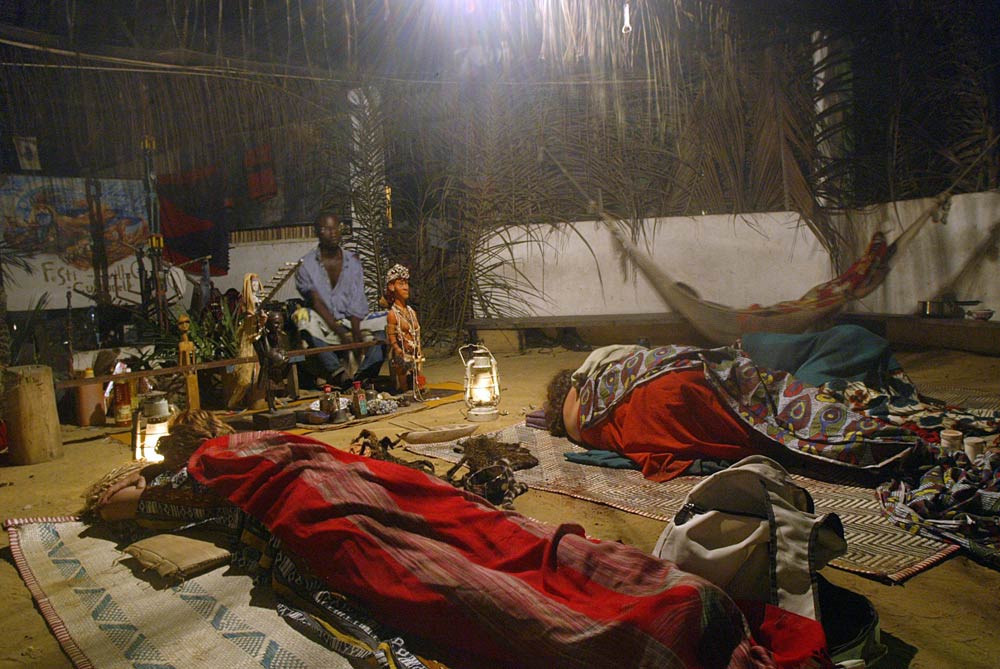
By now you will have heard, in the most recent instance of testicular politics, that Kenya’s Parliament recently passed a Bill that will recognise what they call ‘polygamous unions’. Apparently there haven’t been any real legal provisions for this form of marriage to date, except for citizens of the Muslim faith through the Kadhi court system.
What makes this Bill notable is the fact that the male legislators – the majority – managed to get rid of a clause in the Bill that would require consent on the part of current spouses before a man could bring another contracted partner into his domestic situation. If the Bill is signed into law, wives who have enjoyed a legal monopoly on matrimonial benefits are going to lose their security of tenure just like that. Take note: Kenyan women can’t legally marry multiple men.
If I had a suspicious nature I would imply that judicious pillow-lobbying on the part of shrewd girlfriends and concubines probably explains the enthusiasm with which the Bill was passed. But did they have to turn the contract of marriage into a form of Russian roulette for all other women while they were at it? Of course this Bill deserved a protest. So I stand in solidarity with women of Kenya in terms of opposing this law.
I am disappointed to have to do so because I am very much in support of legalising polygamous marriage and have been for much of my life. Freedom and fair play, say I, and if people have to sign a legal contract for reproductive purposes then let’s at least offer every citizen the same range of flavours.
How did I get so corrupted? Simple, really. Catholic Mathematics.
When I was growing up in one of those delightfully cosmopolitan yet shockingly conservative “middle-class” families, I learned about the birds and the bees and the morality thereof. One man plus one woman plus some love equals legitimate offspring, full stop. Real life, though, didn’t make this lesson convincing. I highly recommend that all children supplement their social education by eavesdropping on their mothers’ conversations with her friends.
Sifting through rants about husbands’ secretaries who wear miniskirts and suchlike, I realised that things were not adding up. All unmarried women were chaste, married women were faithful and men couldn’t keep their zippers closed. Catholic Mathematics? I might not have been in secondary school but I could do addition and percentages. Someone wasn’t being forthright about these birds and bees.
The one who truly sank me, though, was the Zanzibari gentleman who moved next door when I was about eight or so. He had two lovely spouses: a plump older light-skinned one and a slim, shy, dark-skinned younger wife. Not only did they smell deliciously of incense and pilau spices, they seemed to genuinely enjoy each other’s company and any opportunity to lavish food and attention on anyone who walked through the door. They seemed happier and healthier than all the desiccated diplomatic wives who darkened our doors with gin and bitterness.
So I thought: yes. People grow up aspiring to their fantasies of fulfillment, be it financial security, fame, power, whatever. Me? Two husbands, maybe three. One to go out and make some serious bacon and wear bespoke suits with great ties to feed my craving for some alpha male. One to stick around at home and make sure the kids get to bed on time and we’re all eating enough greens and bully me into getting a pedicure. One to be the Saturday night special: excitingly undependable, prone to adventures that might land us in jail, entirely too charming and handsome for his own good.
What will I be doing? Well either recovering from a night out with Number Three or chairing a board or simply co-ordinating and popping out and loving the United Colors of Benetton offspring of our unconventional family. I said it was a fantasy. But when these things take root in your formative years, there’s no getting past it.
To lay the Catholic Mathematics to rest, I had to figure out a moral basis for it that works for me and it has to do with polyamorous principles. Turns out it’s entirely possible, and also sane. As usual the laws and legal system are not keeping pace with the progressive nature of our contemporary society. I am only angry with Kenya because this crusade is personal and they have made it difficult for everybody for chauvinist reasons.
Polygamy, mostly polyandry, has always been around and in principle I have no beef with it. But the point is, and always is, to be fair when it comes to legislation. You can’t refuse people rights because of their race, their religion or their just about anything unless you’re unspeakably heinous. So why is it still okay to get gender politics wrong?
By all means, let us condemn this silly Kenyan polygamy Bill and all that it represents. In the meanwhile, though, if anyone is writing up a real progressive alternative please swing it my way. There are guys out there to marry simultaneously and this woman is trying not to run out of time and available options, not to mention patience.
Elsie Eyakuze is a freelance consultant in print and online media from Tanzania, working mainly in the development sector. She blogs at mikochenireport.blogspot.com. Connect with her on Twitter.








